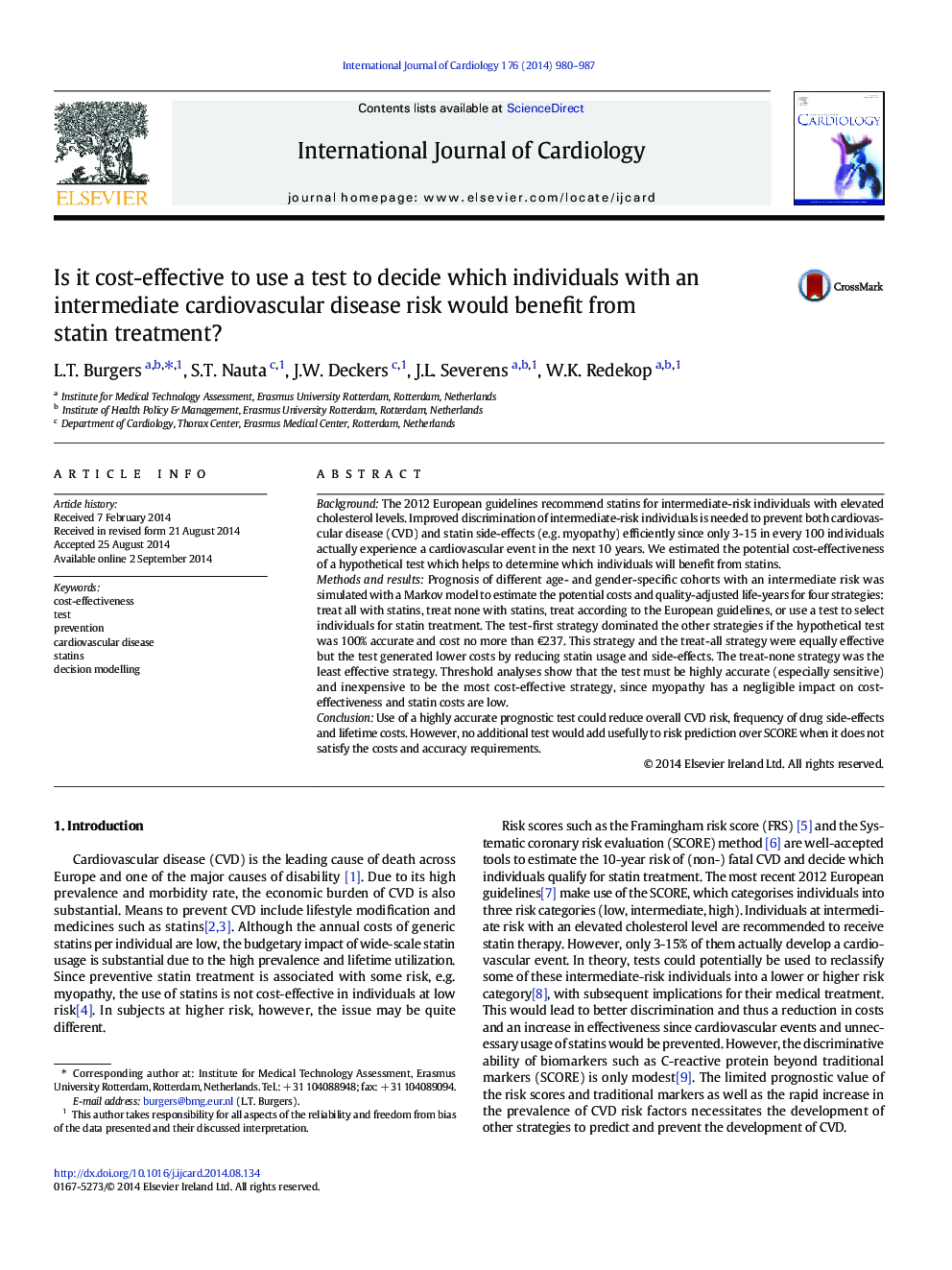| Article ID | Journal | Published Year | Pages | File Type |
|---|---|---|---|---|
| 5969382 | International Journal of Cardiology | 2014 | 8 Pages |
â¢A highly accurate prognostic test could reduce overall CVD riskâ¢A perfect test dominates the other strategies if the test costs no more than â¬237â¢The ESC guidelines are equally effective and cheaper than the treat-all strategy
BackgroundThe 2012 European guidelines recommend statins for intermediate-risk individuals with elevated cholesterol levels. Improved discrimination of intermediate-risk individuals is needed to prevent both cardiovascular disease (CVD) and statin side-effects (e.g. myopathy) efficiently since only 3-15 in every 100 individuals actually experience a cardiovascular event in the next 10 years. We estimated the potential cost-effectiveness of a hypothetical test which helps to determine which individuals will benefit from statins.Methods and resultsPrognosis of different age- and gender-specific cohorts with an intermediate risk was simulated with a Markov model to estimate the potential costs and quality-adjusted life-years for four strategies: treat all with statins, treat none with statins, treat according to the European guidelines, or use a test to select individuals for statin treatment. The test-first strategy dominated the other strategies if the hypothetical test was 100% accurate and cost no more than â¬237. This strategy and the treat-all strategy were equally effective but the test generated lower costs by reducing statin usage and side-effects. The treat-none strategy was the least effective strategy. Threshold analyses show that the test must be highly accurate (especially sensitive) and inexpensive to be the most cost-effective strategy, since myopathy has a negligible impact on cost-effectiveness and statin costs are low.ConclusionUse of a highly accurate prognostic test could reduce overall CVD risk, frequency of drug side-effects and lifetime costs. However, no additional test would add usefully to risk prediction over SCORE when it does not satisfy the costs and accuracy requirements.
